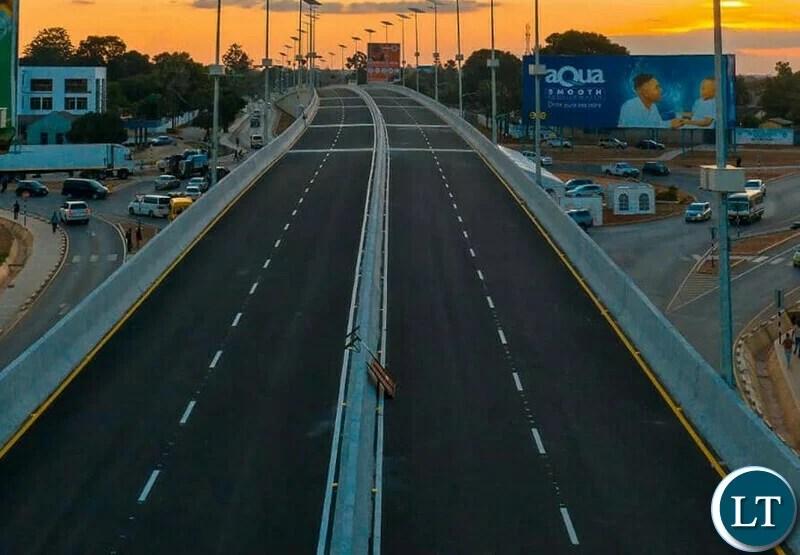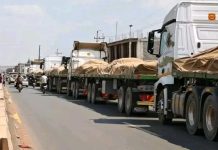Africa-Press – Zambia. I found comrade Molotoni in his study room with his head in the direction of the ceiling board of his house which, by all human logic was a message that something was in his mind. Often, in his display of normal human characteristics, he would be welcoming me with joviality and head facing me. This state of affairs left me with little room for waiting, so I asked him, “I have no doubt that something is spurious given the way you’re carrying yourself today. I’m here to share the burden.”
“He sharply replied, ‘Toti’, as he liked referring to me, “Sit down and I will soon empty my worries.”
After I had sat down, he went on to roll his sleeves, stretched his moustache and pointed his finger at me saying, “You read my mind well. I’m completely distraught my brother at what is going on in our country, in particular soon after the Presidential elections. I have read all the comments made about the elections. I have heard from different analysts’ reasons why PF lost elections. They talk about cadres, corruption and other evils as reasons. But I don’t hear anyone talking about the special poisoned chalice that was created by PF and later came to haunt them.”
Although I had an idea of what a poisoned chalice meant, my character is to always find details and clarity instead of using assumptions and generalizations. So, I asked him, “Please explain the meaning of what you have just said.”
“He answered swiftly, “According to the English dictionary, a poisoned chalice is something that is attractive when it is given to somebody but which soon becomes unpleasant.”
“So, what was so unpleasant and can you cut the long story short my friend? What exactly do you want me to hear?” I asked.
“Let me try to answer your question by asking you a question. What do you think was PF’s main campaign weapon?”
“I think every Zambian knows that PF campaigned on infrastructure development. PF leaders exhibited ostentatious and shameless information. They danced and bragged about the so-called structural change and development. They told Zambians to see the number of roads, bridges, clinics and schools that PF and Lungu had brought. Lungu was eulogized as if roads, clinics and football stadiums are the only characteristics of infrastructure. Infrastructure is an important part of development. But infrastructure is not development. And development is not infrastructure.”
Filling his glass with whisky, an alcoholic drink he had come to accept as a fad among the Zambian elite, he replied, “Not to interrupt you, my friend. You’re right. Infrastructure is simply an integral part of development. Infrastructure too is not simply roads, bridges, clinics and football stadiums. According to experts, infrastructure development “is the construction and improvement of foundational services with the goal of sparking economic growth and improvements in quality of life.” Further, they state, “Infrastructure development can include transportation, energy, water, digital, social and green infrastructure.”
I then added, “Infrastructure development must be treated in a coherent and integrated manner. It means all the parts that constitute infrastructure development must be taken into account. Coherence in infrastructure development means going beyond roads and bridges. There are much more important infrastructural issues that PF deliberately ignored. PF did not talk about the ailing energy sector whereby homes and business continue to suffer from daily energy shortages which in turn negatively affect the running of factories, retail shops, hospitals, households, and general productivity in the country. In factories and other businesses, economic activities are discontinued because of lack of continues supply of electricity.”
Motoloni who was disappointed with PF’s intellectuals for not seeing the clear writing on the walls, drew closer to where I was sitting and added, “Machines cannot work therefore productivity continues to slow. Continued electricity is important for hospitals to run yet they have been affected by lack of continued flow. Zambia’s mines are continuously affected by lack of continued flow of electricity thereby negatively affecting production and productivity. Building roads and bridges especially for business is important but energy infrastructure is as important.”
In support of Motoloni, I said, “True, export value addition cannot take place when electricity is not available. How can the private sector thrive without energy? While they bragged about roads and bridges, PF lamentably failed to address the water infrastructure which translated into continued water shortages for businesses and households. Water infrastructure was neglected by PF for many years. People live in houses without water. Most public offices and homes have no running water. So, how can this deplorable state of affairs be considered PF’s structural transformation?”
“Indeed public toilets have no water. Most schools and hospitals, including the clinics that are being built today by PF have no adequate water supply. People were voting in stations without running water. Many ministries have no running water. So, how can any reasonable Government brag that it is building unprecedented infrastructure without corresponding quality water infrastructure? Roads and bridges are often used by passenger cars most of which do not belong to the common people. While posh cars often belonging to the privileged ransack Lusaka roads daily, common people expected to provide more votes walk in dirty sides of the posh roads collecting dust on their worn-out shoes and sandals and bare feet. Poor people’s lives are often threatened by bad drivers using these roads. Yet, when time to vote comes, they are told to remember the PF. The so-called road-building seems to be mainly in Lusaka. Important towns like Kitwe, Ndola, Livingstone and many rural towns have the same roads left by the Kaunda regime. Roads from Lusaka to Kitwe, to Kasama, to Mongu, to Solwezi and many other places are neglected.”
“I totally agree with you. Like the ostrich hiding its head in the sand, PF forgot to address perhaps the most important problem. Instead of addressing it or even talking about it, they preferred to hide it from the people as if it didn’t exist. Yet, it is at the heart of politics in Africa. Can you explain what that is?”
“Of course, I will. You see, man cannot eat infrastructure alone. While infrastructure development was being used as a chalice with pure wine to drink from, PF ended up turning it into a poisoned chalice from which its leaders drank and found themselves consigned into oblivion. PF took over Government in 2011. Ever since, annual average GDP growth has been slumping. In 2010, prior to its rule, GDP growth had reached unprecedented level, perhaps its highest of 10.3% as Figure 1 below shows. Growth continued to tumble – down to minus 2.8% in 2020. Nowhere in the image below does it show significant growth during PF’s rule. But perhaps more importantly, growth of GDP per capita over the period has equally gone down miserably. It fell from a peak record of about 7.1% to minus 5.6%.”
“You see Motoloni, unlike GDP, GDP per capita is what explains the relationship between common Zambians and their economy. It it here where one can tell whether the economy is able to ensure that each Zambian has three meals a day or not. The economy was performing so bad that while PF leaders and their cadres were celebrating infrastructure development and telling common Zambians to vote for them, the stomachs of the latter were slowly complaining. The majority of Zambians were shouting their support for PF on an empty stomach while a few enjoyed.”
Motoloni who was now filled with grief retorted, “Thanks for this statistical information. GDP per capita shows Zambia’s economic output per each Zambian. It is what affects Zambia’s households. When GDP per capita is growing, it provides hope for Zambians and they are likely to applaud leadership for building roads and bridges. Growth is assurance that the promised land is getting nearer. On the other hand, negative growth on an annual basis is an indication of despondence and despair. Hence, the PF period was characterized by such hopelessness.”
Then I asked, “Why do you think the PF leadership was so pre-occupied with infrastructure development at the expense of the overall economy? Why was the downturn of the economy never mentioned in their campaign? Did Zambians really complain about the ailing economy?”
“Zambians complained in different ways although no one really brought these statistics to the public. By marginalizing the economy, PF failed Zambians. Yet, if their campaign had been driven by overall economic growth, explaining how they would turn things round and show examples, perhaps Zambians would have understood and rallied behind them. The strategy to mend the economy and provide people with three meals a day would have saved the PF. In Africa, that is the building block of any political success. The Maslow Hierarchy of Needs teaches us that basic needs must be met first before going to more sophisticated ones.”
“I’m in agreement with you. Reasonable governments start by feeding their poor people before moving into infrastructure-building. It is also common strategy that common people are less associated with sophisticated things like infrastructure in roads and bridges because they hardly use them. They build a symbiotic relationship with leaders that provide them the capacity to feed themselves more than those that preach infrastructure and give them handouts. Yes, infrastructure for growing and providing food is important. It is much more important than infrastructure in roads and bridges.”
“You will agree with me that because people are the drivers of change, true development must start with people’s stomachs of three quality meals a day. It is an illusion to preach development based simply on infrastructure-building when the very people you expect to vote for you are hungry. Every Zambian has the right to food, to a decent meal and the right to put hunger behind them. Achieving a hunger-free Zambia should be the most important objective of any government because doing so has a multiplier effect.”
“Of course, I too agree with you. Then what would be the lessons for UPND and its leadership?” Motoloni asked. “A hungry-free Zambian is unlikely to cause problems. A hungry-free Zambian is likely to be motivated to vote, work hard and look after themselves and their families. A hungry-free Zambian is likely to contribute to national development. Removing hunger should not mean giving hand-outs. It should mean building capacity for people to remove hunger themselves. On their own, they don’t have resources.”
“You’re absolutely right comrade. Therefore, government must empower them to grow their own food to feed themselves and sell surplus. What President Hichilema is saying in his speeches is encouraging. He says that infrastructure development is important. But this must be based on overall economic development. Leadership should invest in a growing economy first. A growing economy will have a multiplier effect of generating three meals a day for each Zambian. Armed with three meals a day, Zambians will have little reason not to vote for UPND again. But if UPND prefers to drink from the poisoned chalice of infrastructure first, then growing the economy second, its leadership is likely to suffer the same chagrin as their PF counterparts.” We concluded by taking our last sip and hoped UPND would work better and avoid botching up.
For More News And Analysis About Zambia Follow Africa-Press







